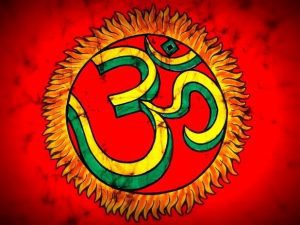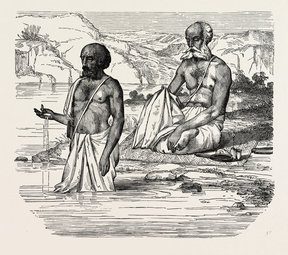Amit, our Editor-at-Large (Europe), argues that Hindusim, a largely colonial construct, needs to be decolonised in his erudite research paper. A Different Truths exclusive.
“Understanding the system of ideology that operates in one’s own society is made difficult by two factors: (i) one’s own consciousness is itself a product of that system, and (ii) the system’s very success renders its operations invisible, since one is so consistently immersed in and bombarded by its products that one comes to mistake them (and the apparatus through which they are produced and disseminated) for nothing other than ‘nature’.” ~ Lincol
 Prevailing, ideology about ‘Hindu religion’ in the Indian context, is very much the construct and invention of British Victorian epistemology. The power of the colonial epistemology is so pervasive and penetrating, not only Indian academic are very much under its influences, but also, socio-religious-political lives of an ordinary Indian have been taken over by it since ‘consciousness of the masses’ is product of this system (colonial epistemological discourse about Hinduism ) thus people failed to dissect the truth from the colonial fiction. This is fact that we have achieved political independence from Britisher decade ago, however, our ‘academic and intellectual community seems not doing enough to challenge the hegemonic colonial epistemological discourse- under which, our society – particularly Hindu community – is still under control and blinded.
Prevailing, ideology about ‘Hindu religion’ in the Indian context, is very much the construct and invention of British Victorian epistemology. The power of the colonial epistemology is so pervasive and penetrating, not only Indian academic are very much under its influences, but also, socio-religious-political lives of an ordinary Indian have been taken over by it since ‘consciousness of the masses’ is product of this system (colonial epistemological discourse about Hinduism ) thus people failed to dissect the truth from the colonial fiction. This is fact that we have achieved political independence from Britisher decade ago, however, our ‘academic and intellectual community seems not doing enough to challenge the hegemonic colonial epistemological discourse- under which, our society – particularly Hindu community – is still under control and blinded.
Terms like dharm did not carry the same connotations as religion.
Some scholars have argued, no similar concept to the British notion of religion existed in South Asia before their arrival. Terms like dharm did not carry the same connotations as religion. Talal Asad has rightly explained that this was the case because the European concept of religion is partly defined by the counter-notion of the secular. That is to say, religion could be conceived as a distinct realm of ideation and behaviour only with the positing of a non-religious realm. In Hinduism discourse there is no word for ‘religion’. Atal Bihari Vajpayee, the BJP thinker and ex-prime minister of India, correlates the Indian concept of ‘Sarva Dharma Sambhava’ closer to Western secularism. He believe in, Indian context, correct interpretation of the Secular State would be that all dharmas or religious faiths are treated with equal respect. Idea of ‘Sarva Dharma Sambhava’ is not against any religion.
The British who arrived in South Asia often unfavourably depicted the states and societies there as hopelessly religious and, therefore, vulnerable to the same superstitions, priestly subterfuge, intellectual oppression, religious intolerance and political tyranny that they imagined they had successfully escaped. They operated under an implicit categorical system that defined different types of societies and valued them relative to one another according to the success each had demonstrated in achieving some measure of modernity. It would be interesting to note, in precolonial India, the ideal polity fused religion and politics in a unified world. During the British colonial period they were conceptually titrated into separate domains, politics being strictly surveilled and religion conceptualised as autonomous.
It is during the Enlightenment that ‘religion’ became objectified as systems of belief and practices.
The concept of religion carries forward cultural tropes that reflect its largely Christian history, but as a feature of Western constructions of modernity it remains essentially the product of a secularist conception of history. It is during the Enlightenment that ‘religion’ became objectified as systems of belief and practices.
essentially the product of a secularist conception of history. It is during the Enlightenment that ‘religion’ became objectified as systems of belief and practices.
In the context of India – Hindu is new term. Hindu, in its original meaning, meant those who live in Hindustan; over the last few centuries the term, Hindu, has become a religious term, and Indian has replaced Hindu for the civilisational meaning. Label has acquired a new meaning. The fact that so many South Asians made claims for the antiquity of Hinduism when the name was coined only recently reflects both the persuasiveness and significance of British epistemologies argues Peter Gottschalk.
Modern Hindu religion is a colonial construct – a product of Western modernity and orientalism.
Modern Hindu religion is a colonial construct – a product of Western modernity and orientalism. Created by the West, enshrined in Western epistemology, and central to its identity, the concept of religion eventually came to be the core of the Western worldview. Indians had their own self-identifications and social associations that were influenced and interrupted by British classifications. This was particularly true because of the British proclivity to collapse most social categories onto a single plane of identity: religion.
The epistemologies employed by the British provided both the context of knowing and the categories that shaped the content of knowing. This irrevocably refashioned many indigenous ways of understanding South Asian populations and religions. Many examples of literature, inscriptions, histories and other materials demonstrate the formal and informal social classification schemas operative in middle-period South Asia. What differentiated the British systems in India from their predecessors was the establishment of a universal set of social categories that became instrumental in government rule and South Asian self-understandings throughout the Subcontinent and the primacy of religious identity as the first order of classification in multiple epistemologies.
Impinging the ideology of Victorian concept of religion helped British to classify, categorise and divide Indians on the basis of their religious identity.
 In other words, current Indian Hindu population, very much see its religious identity through the prism of colonial epistemology of religion, which originally meant to control over their indigenous knowledge and way of thinking. Impinging the ideology of Victorian concept of religion helped British to classify, categorise and divide Indians on the basis of their religious identity. Thus, it was easy to rule over India and Indians, who were unable to govern themselves.
In other words, current Indian Hindu population, very much see its religious identity through the prism of colonial epistemology of religion, which originally meant to control over their indigenous knowledge and way of thinking. Impinging the ideology of Victorian concept of religion helped British to classify, categorise and divide Indians on the basis of their religious identity. Thus, it was easy to rule over India and Indians, who were unable to govern themselves.
Ironically, modes and products of knowledge deployed by Europeans during their imperial projects, continued to be felt decades after the decline of the colonial state even today. Because of the globalization of Western epistemologies, these classification systems (religious) have been replicated and seemingly confirmed in the other corners of empire, the impact of these western classification systems, embedded in hegemonic systems of knowledge and impelled by the inertia of imperialism, served as an epistemological violence that would, over time, help amplify pre-existing possibilities for social tension into unprecedented paroxysms of religious violence as manifested in Hindu-Muslim religious tension in India.
Thus, I suggest religion is not fundamental in understanding our society because of its colonial biases and power relations. There is a dire need to decolonise current discourses on Hindu religion since it is misleading and does not represent indigenous Indian mode of thinking and life style.
©Amit Singh
Photos from the Internet





 By
By

 By
By